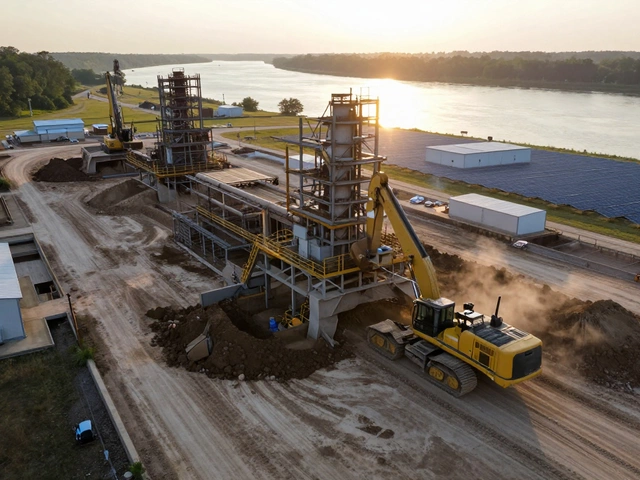Industrial Machines – What You Need to Know
Industrial machines are the backbone of factories, workshops, and even big HVAC plants. Whether you run a small shop or a huge production line, the right machine can shave hours off work, cut waste, and keep the crew safe. In this guide we walk through the most common machine types, what makes a good pick, and a few tricks to get the best value.
Key Types of Industrial Machines
First up, let’s break down the big families. Discrete machines build separate items – think CNC mills, lathes, and robotic arms that make car parts one by one. Process machines handle continuous flows, like injection molding units, sheet‑metal rollers, or large HVAC compressors that run 24/7. Both groups have their own set of specs, power needs, and maintenance routines.
Another useful split is based on speed. Some manufacturers in India brag about the fastest machines in the country – high‑speed textile looms, rapid CNC routers, or turbo‑charged chillers that finish a batch in minutes. If you need to meet tight deadlines, those speed champions can be worth the extra cost.
Don’t forget automation level. Basic machines have manual controls, while advanced units come with PLCs, IoT sensors, and remote diagnostics. Automation can lower labor costs, but it also demands skilled technicians for setup and troubleshooting.
Choosing the Right Machine for Your Business
Start with the job you need to do. List the material, size, and tolerance requirements. If you’re cutting metal, a CNC mill with a 20‑mm spindle might be enough; for plastic parts, an injection molding press with precise temperature control is key. Matching capability to need prevents over‑paying for features you’ll never use.
Next, check the power draw. Industrial machines can gulp a lot of electricity, and that shows up on your monthly bills. Look for efficiency ratings or energy‑saving modes – especially for HVAC equipment where power savings add up fast.
Reliability is another deal‑breaker. Research the brand’s track record, read user reviews, and ask for uptime statistics. Companies that publish a clear maintenance plan usually have fewer surprise breakdowns.
Budget matters, but treat the purchase as an investment. A cheaper machine might need more repairs, while a higher‑priced model with solid warranty and easy parts availability can pay for itself in lower downtime.
Finally, think about future growth. Can the machine be upgraded with new software or extra tools? Scalable machines let you add capacity without buying a whole new line.
In short, pick a machine that fits your product, balances speed and cost, and offers reliable support. When you get those basics right, you’ll see faster production, less waste, and happier staff – all without spending a fortune.





